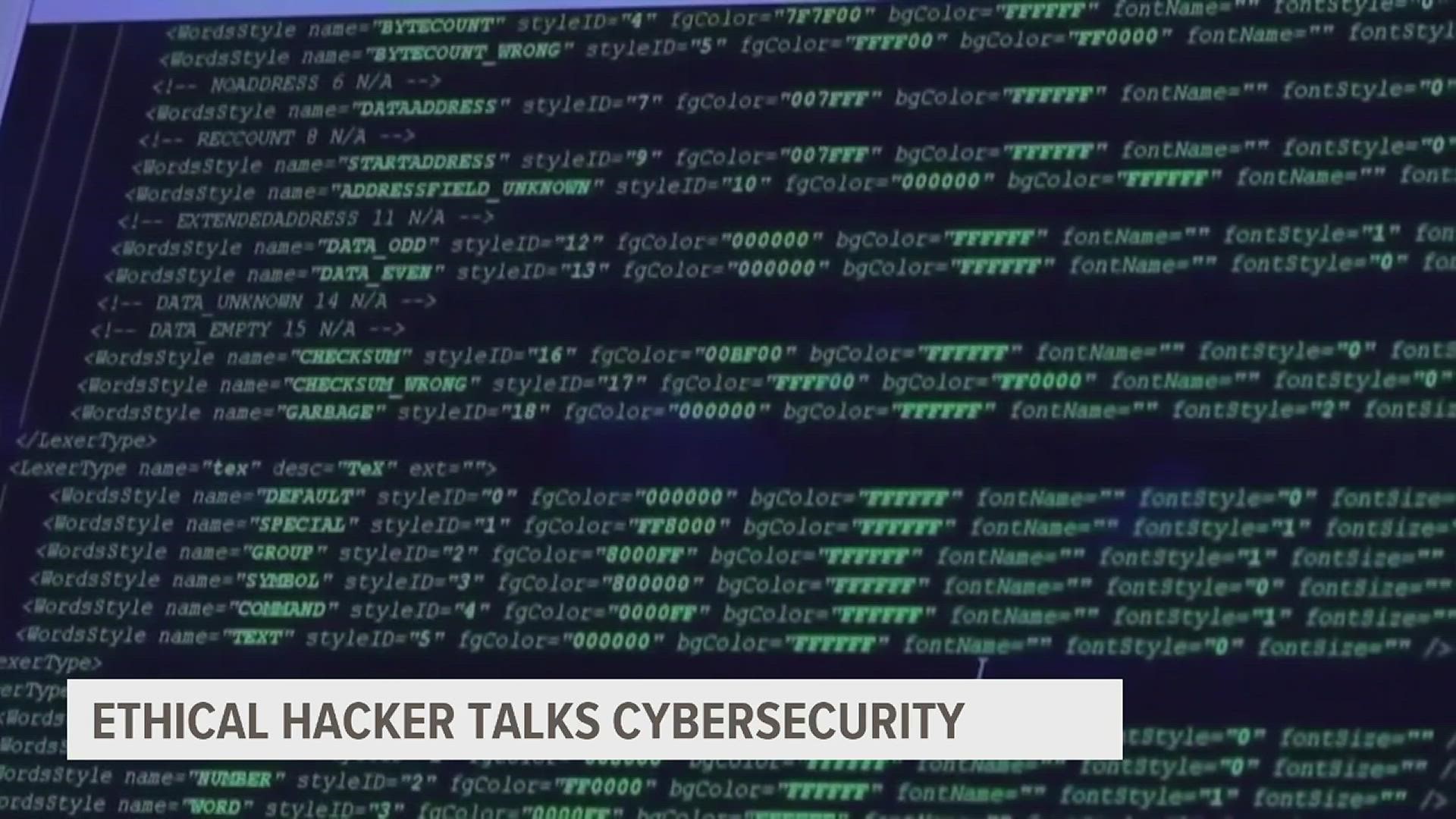DAUPHIN COUNTY, Pa. — Smartphones and personal computers make access to bank accounts convenient for customers and hackers alike.
To combat online threats, banks employ their own hackers.
The Pennsylvania State Employee Credit Union has more than half a million members, making it the largest credit union in the Commonwealth.
And with so many accounts, online hacking attempts are just part of the workday.
"We’re seeing attacks come from China, from Russia, even North Korea, and we have to make sure those attacks don’t get through," said Manager of Security Operations Scott Lenker.
In order to protect customer information from prying eyes, Lenker uses his skills as a United States-certified ethical hacker.
"From a certified ethical hacker standpoint, we actually break into the systems, we make sure that we’re the first people to find the vulnerabilities, so if we break into and find the vulnerabilities, we’re able to fix it before the bad guys are able to get in," said Lenker.
His proactive approach to cybersecurity is common among other ethical hackers that use their hacking skills for good, rather than for damage.
"It’s in the high 80s to low 90% of hackers out there who are financially motivated. Now there are other hackers that are trying to steal your personal information and they’re trying to use that for other nefarious reasons," Lenker explained.
Most hackers are able to manipulate a user's online account through various means, regardless of a user’s protection plan.
Virtual private networks and two-factor authentication can be bypassed, sometimes by the user themselves without their knowledge.
"Recently, what we’ve seen, is the hackers are putting up fake websites and you can very easily tell that they’re fake just by the address. Whenever you get on to one of those free wireless access points, the person who owns the access point can almost do anything they want," Lenker told FOX43.
With his expertise in cybersecurity, Lenker was previously invited to speak at cybersecurity events like NuPATHS, to educate a younger generation of online users about how to avoid risky online behaviors.
"With the youth, one of the things I did say was Snapchat. [Asking them] 'Would you like me to see what you’re doing on Snapchat?' Literally, if I was a hacker in this particular scenario, I could’ve done that," Lenker said.
However, he says it's older online users that are the most vulnerable to online hacking attempts due to poor computer literacy.
Due to confidentiality reasons, Lenker and his team can't allow public access to their operation, in order to keep their practices safe from the wrong type of hackers.
His team receives hundreds of hacking reports a day, demonstrating how the fight is never-ending.

